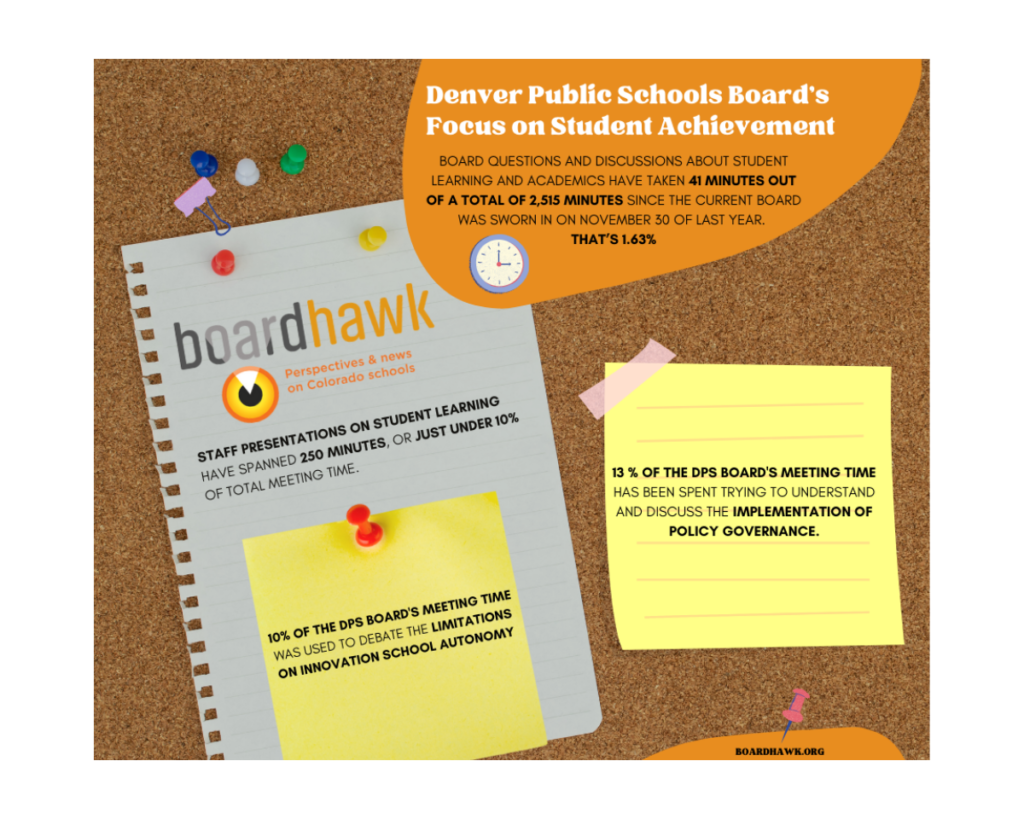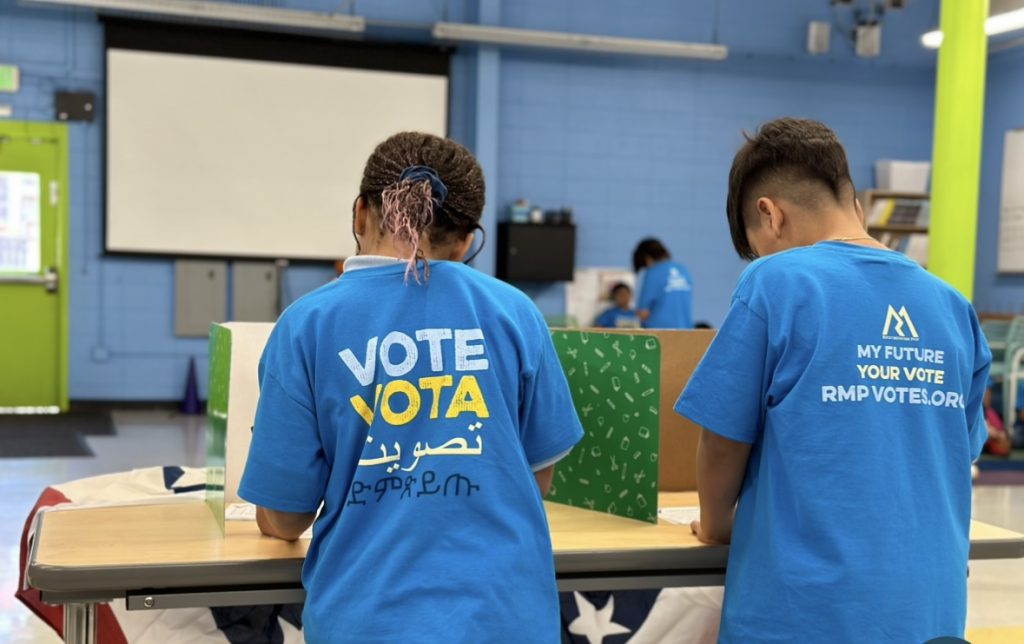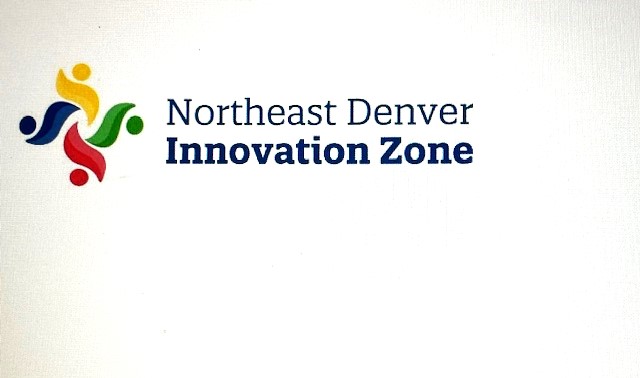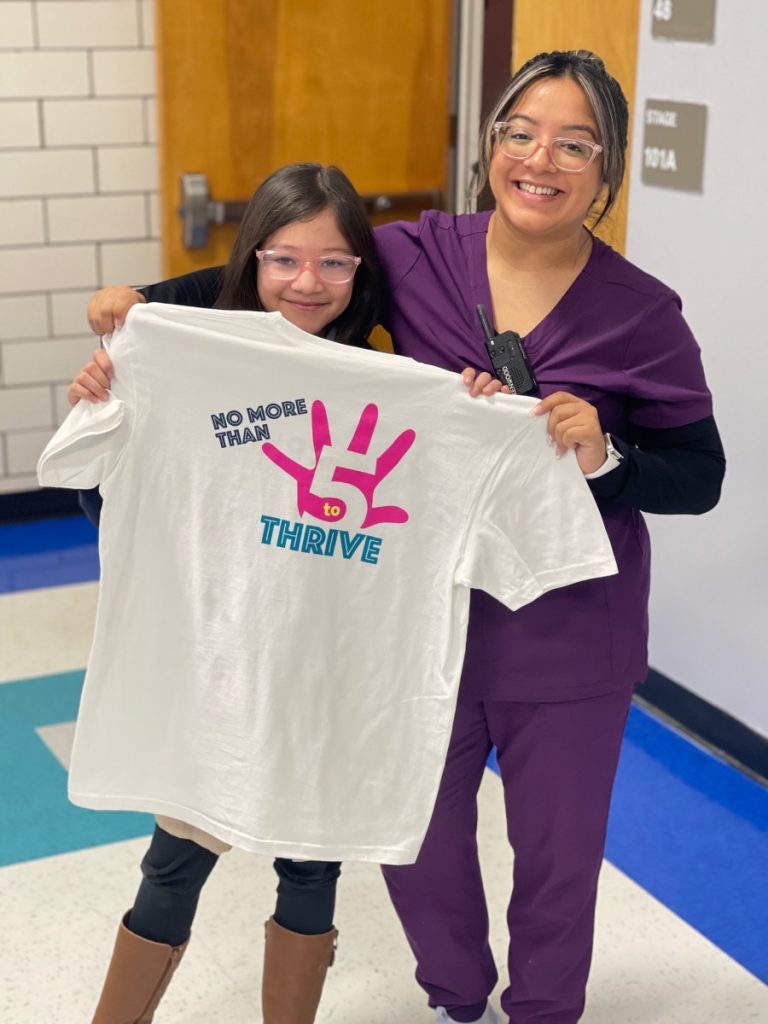Since taking office last Nov. 30, the Denver school board has spent less than 2 percent of its time together discussing and asking questions about student learning and academics, a review of board agendas and meeting recordings shows.
Board questions and discussions about student learning and academics have taken 41 minutes out of a total of 2,515 minutes of meeting time since the current board was sworn in on November 30 of last year. That’s 1.63 percent. Staff presentations on student learning have spanned 250 minutes, or just under 10 percent of total meeting time.
The board’s lack of focus on student achievement comes as the district faces a major crisis on this front in the wake of the Covid-19 pandemic. Recently released data shows that just 5 percent of Black third-graders and 5 percent of Latino third-graders met or exceeded grade level in interim assessments given last fall.
While that specific data hasn’t been presented or even released to the board, Denver Public Schools staff has, during three work sessions since December, presented achievement data that painted a dire picture of the state of student learning.
The board has focused much of its time on the intricacies of its own internal operations, dedicating 13 percent of its meeting time to understanding and discussing the implementation of Policy Governance. The board spent another 10 percent of its meeting time debating the limitations on innovation school autonomy that it passed last month.
Covid-19 precautions and strategies, another major concern in this day and age, have occupied just under 2 percent of the board’s time. The board has also spent time on charter school renewals, district finances and enrollment declines, restructuring public comment during board meetings, placing menstrual products in school bathrooms, staff and student mental health, and improving community engagement.
The highwater mark for board discussion of student learning came during a 90-minute, 50-slide staff presentation on fall assessments of the district’s elementary students, last December 13. That presentation was followed by school leaders from four district schools discussing their strategies to boost student learning. That took up another 65 minutes.
Board members spent 32 minutes asking questions and hearing responses after the presentations.
Before and since then, board meetings, a retreat, and work sessions have been extremely light on student achievement discussion and questions – totaling just nine minutes of board member questions and discussions over 11 meetings of various types.
On January 18, a brief presentation showing significant drops in reading proficiency among the district’s younger students, board members asked two questions, taking up three minutes.
On February 22, a “midyear academic stepback” presentation included a slide that showed just 24 percent of students in grades 3-8 meeting or exceeding benchmarks in reading, and 40 percent hitting those marks in math. The board asked questions and heard responses for three minutes.
A March 21 work session included a presentation on graduation and matriculation rates, which showed, among other data points, that 62 percent of high school seniors have met credit requirements to graduate. Board President Xóchitl “Sochi” Gaytán said there would be no questions.
Not all meetings present significant opportunities for board discussions. Regular monthly voting meetings, for example, include often lengthy public comment sessions, but the board does not engage the public during those meetings.
Even excluding the regular monthly meetings and including only monthly work sessions and so-called Focus on Achievement sessions and retreats, however, board discussion of student achievement issues took up just 2.3 percent of total meeting time.
By contrast, during the final two work sessions in early 2020 before the district was derailed by Covid-19, February 18 and March 5, the previous school board spent five hours hearing presentations, asking questions, and discussing issues of student achievement.
That’s an hour more over two weeks than the current board has spent in total over the last four-plus months hearing presentations on and discussing these issues.




